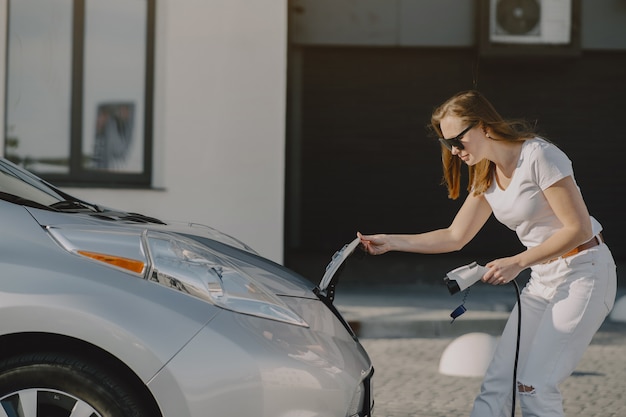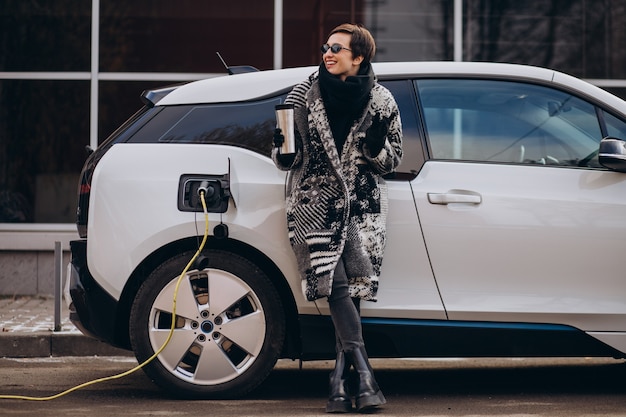
Who Leads the Charge Towards Electric Mobility? (Statista) – EV Market Stats
With Tesla’s meteoric stock market rise in 2020 and several countries and car manufacturers announcing new electric vehicle targets, electric cars have been in the spotlight for a while now.
And while they still account for a single-digit percentage of global passenger car sales, several countries, especially across Europe, have made huge strides towards a cleaner future in 2020.
While Norway is by far the country with the highest share of electric cars in total passenger car sales, no country comes even close to China in terms of absolute market size.
According to the China Association of Automobile Manufacturers (CAAM), sales of battery electric vehicles (BEV) and plug-in hybrids (PHEV) amounted to 1.00 and 0.25 million in 2020, respectively. That puts China way ahead of Germany (395,000), which overtook the United States in terms of EV sales.
https://www.statista.com/chart/13143/electric-vehicle-sales/
Benefits and Advantages of Electric Cars
Electric Cars ( EV) – Benefits and Advantages
Electric cars are already the present and they have a bright future. These environmentally-friendly EVs have become much more commonplace today than they were 10 years ago, with a 40% year-on-year increase.
These cars (EV) come with many benefits and a nice range of luxury and more budget-friendly options available.

- Cheaper Solution
Batteries will need replacement after a few years, electric vehicles are still cheaper than petrol or diesel cars. Electrical motors have much fewer parts than fuel-based engines.
They’ll require less servicing and repairs cost less. On top of that, many countries are also starting to adopt tax incentives and business grants for EVs.
The other cost-saving factor is fuel, of course. Oil prices will continue to hike in the future as resources run out. Not to mention being hostage to continued fuel tax levies.

Electric vehicles, on the other hand, have none of those issues. They can even be charged at home with a home charging unit, which costs a bit of money to install but is still very affordable.
- Government Incentives and Zero-Emission Vehicles
Government agencies around the world have and continue to provide policy-driven support for electric vehicle production and adoption. The main regulatory incentive is to decrease CO2 emissions to achieve a future where zero-emission vehicles are the norm.
Countries like Norway are starting to make pledges to phase out internal combustion engine vehicle sales.

- Public and Large Transport Vehicles
Consumer vehicles aren’t the only market segment of electric car options. EV adoption in the public and commercial sectors is slow going right now. But the long-term cost, environmental, and health benefits of switching to electric vehicles are pushing both industries in that direction.
- Fossil Fuels – The End Is Closer
There’s speculation that the world will run out of fossil fuels in as early as 53 years. Maybe even less. That means there’s a hard limit on how long people can still operate the way they do before these resources become so scarce that prices skyrocket.

That’s why many policy-makers and companies are trying to make the switch to electric vehicles now. Of course, this also means that electricity generation has to turn a new leaf.
Many countries have started banning coal power plants and choosing more sustainable options. This also means electric vehicles don’t have a chance of running out of “fuel” resources anytime soon.
- Driving Experience
One of the first things people notice about electric cars is how quiet they are. This, coupled with the fact that they have instant torque, makes them a joy to drive. They also have a lower center of gravity, which provides both driving and safety benefits.

Driving-side means better grip and steering during turns. Safety-wise it means the cars have less chance of rolling over and the absence of fuel means less risk of fires or explosions.
On top of that, the electric cars being rolled off the assembly line today have the best to offer in terms of safety and luxury. They often come with the latest specs and features and are built to handle collisions better as well.
- Benefits for Health
Reduced harmful exhaust emissions are good news for our health. Better air quality will lead to fewer health problems and costs caused by air pollution3. EVs are also quieter than petrol/diesel cars, which means less noise pollution.

- Security – A Downside (hackers)
Despite all of the benefits of switching to electric vehicles, there is one downside that most consumers don’t think about. Security.
As technology continues to improve, a lot of that gets integrated into cars and the way people live their everyday lives. Having an on-board GPS or using public Wi-Fi to listen to music or search for suggestions/directions while driving is very common these days.

Autonomous internet-connected cars are also starting to become more normal. But so are digital threats.
In 2016, there had been reports of electric vehicles being susceptible to hacks. So, taking extra precautions like using a VPN while traveling will become essential. What is a VPN? This cybersecurity tool secures your internet connection and keeps all your data safe wherever you are. It’s a great way to stay safe on the internet.